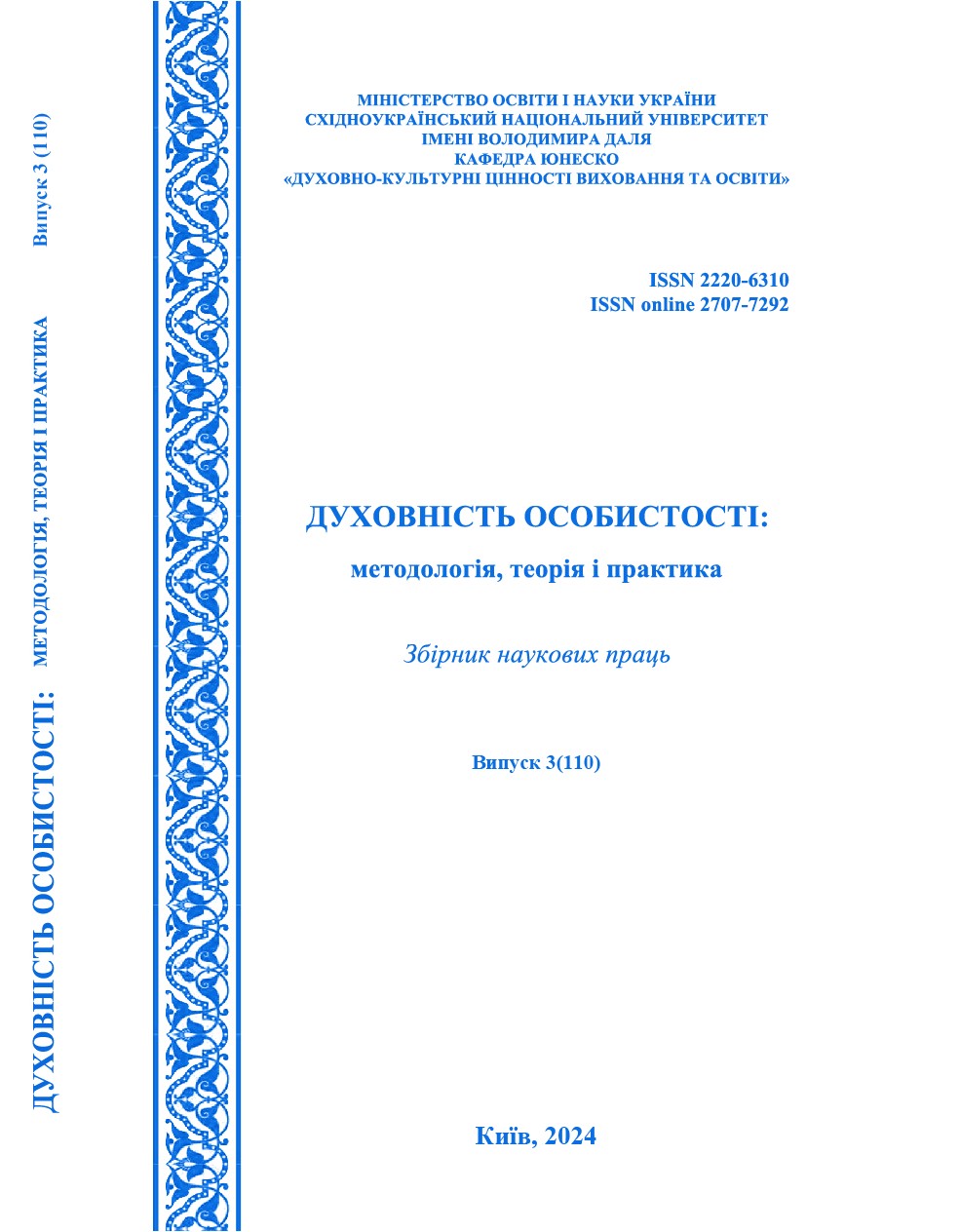Inclusive culture of teacher education students as an indicator of their professional culture
DOI:
https://doi.org/10.33216/2220-6310/2024-110-3-116-127Keywords:
inclusion, inclusive education, inclusive educational environment, inclusive culture, formation of an inclusive culture, pedagogical education students, future teachersAbstract
The problem of forming an inclusive culture in future teachers as an indicator of their professional culture is revealed in the article. The relevance of forming an inclusive culture in every participants of the educational process and society as a whole is emphasized. It determines a new vector of its further development - the equal inclusion of people with disabilities in society.
It is stated that inclusive culture is expressed in a humane, tolerant, and caring attitude of people towards each other. It is built on the ideas of each individual`s value, cooperation on the basis of partnership. The inclusive culture is understood as creating conditions for the development of all participants in the educational process; is based on inclusive values, which, in turn, become the basis for inclusive education.
The authors reveal the tasks of forming an inclusive culture of pedagogical education applicants. They are regarded as the formation of motives for inclusive activity which aimed at understanding the characteristics of working with children with special needs and their parents, mastering a set of special knowledge, skills, abilities and competencies necessary for successful work with children and their parents in inclusive education and encouraging self-control and self-assessment in the process of inclusive activities.
It is stated that the formation of an inclusive culture in the educational environment of pedagogical institutions of higher education should be a specially organized continuous process. It is built on the observance of certain inclusive values such as the recognition of the value of human diversity, openness of the educational organization for all participants in the educational process, the priority of the principle of equality, the value of cooperation and pedagogical support in the educational process.
In the conclusion it is emphasized that the purposeful formation of an inclusive culture in the educational environment of educational institutions that train educators and teachers is an important condition for both the successful inclusion of students with special educational needs and health disabilities in the educational process, and the formation of an inclusive culture in future educators.

